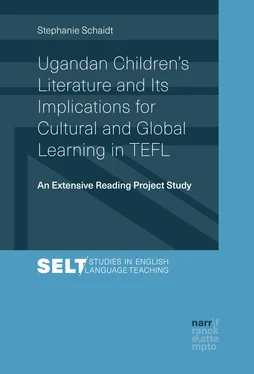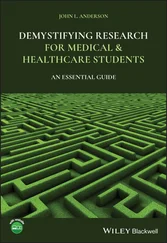In addition, the Landeskunde approach developed an intercultural perspective. In this context, the Stuttgarter Thesen zur Rolle der Landeskunde im Französischunterricht (1982) were very influential. This document, which was published by the Robert Bosch Stiftung in cooperation with the German-French Institute, proclaimed “ transnationale Kommunikationsfähigkeit [transnational communicative competence]” as the major aim of FLT in an interconnected world. It pointed to the importance of students’ own experiences and cultural background in the context of teaching and learning about cultures:
Der Fremdsprachenunterricht erreicht deshalb erst dann sein Ziel, wenn er die eigenen Erfahrungen der Lernenden und die historisch geprägten Wirklichkeitserfahrungen der Menschen des anderen Landes ausdrücklich in Beziehung setzt. [For this reason, FLT only achieves its aim when it expressly relates learner experiences to the historically influenced experiences of the people in the other country.] (Robert Bosch Stiftung & Deutsch-Französisches Institut, 1982, p. 11; my translation)
Thus, the document encouraged a shift away from the mere focus on the foreign language and culture to a more learner-centred and comparative approach. This led the way to an intercultural orientation in FLT. In the following years, the call for an intercultural Landeskunde approach became louder. Melde (1987) emphasised the importance of relativising one’s own individual and national perspective and establishing a coordination of perspectives. Thus, she anticipated important findings in the field of Fremdverstehen (see Volkmann, 2007, p. 49).
From the 1970s, scholars in foreign language didactics were also increasingly influenced by cultural studies (Hallet, 2002; Kramer, 1976; Nünning & Nünning, 2000; Schumann, 2000). Advocates of cultural studies (Hall, 1980; Hoggart, 1957; Thompson, 1963; Williams, 1958) set themselves apart from an objective and monolithic concept of culture and instead consider culture as a heterogeneous product of human action (see Sommer, 2003, p. 8). Landeskunde approaches which draw on cultural studies also look at culture in a wider sense, integrating all cultural practices, being part of high or popular culture. Political and ideological critique is particularly important for these approaches. They are often associated with “concepts of emancipation , egalitarianism , and critical thinking ” (Grimm, Meyer, & Volkmann, 2015, p. 157).
Despite various developments in the field, the concept of Landeskunde enjoys little prestige in academic discourse today. It is criticised that Landeskunde approaches often remain rather vague concerning the political agenda and present idealised social images of the target culture(s). Landeskunde no longer conforms to the contemporary notion of culture: It focuses on monocultures with a fixed national identity and so reduces complexity. Critics further remark that the concept focalises culture with a capital C and neglects culture with a small c (Grimm et al., 2015, p. 156; Volkmann, 2010, p. 45). Another point of criticism is that the focus of Landeskunde is usually on the cognitive domain (knowledge), whereas skills and attitudes are neglected (Raddatz, 1996, p. 245).
Notwithstanding the legitimacy of this criticism, it should be acknowledged that Landeskunde contributed significantly to developments in the field of teaching and learning about cultures and thus provides a crucial impetus for current discussions:
Auffallend ist bei gegenwärtigen interkulturellen und kulturwissenschaftlichen Positionen die demonstrative Abgrenzung gegenüber der als überholt abgewerteten Landeskunde. Dabei wird nicht erkannt, dass Landeskundekonzepte durchgehend von Gegenkonzepten und der genannten Suche nach einem Mehrwert der Landeskunde begleitet waren. Viele der heute diskutierten Fortschritte bei der Betrachtung anderer Kulturen wurden bereits – ohne dass dies entsprechend gewürdigt wird – in den 1970er und 1980er Jahren angebahnt. [When looking at current intercultural and cultural studies positions, the pointed demarcation from the concept of Landeskunde, which has been devaluated as outdated, is striking. It is not recognised that concepts in Landeskunde were continuously accompanied by counter-concepts and the search for an enriched Landeskunde . Without being adequately acknowledged, the ground for much of the progress in the field of learning about cultures discussed today had already been prepared in the 1970s and 1980s.] (Volkmann, 2010, p. 49; my translation)
Aspects of a rather politically oriented Landeskunde (see Köhring, 1981; Markmann, 1986; Schüle, 1983), for example, constitute the foundation of the global education approach in TEFL in Germany (see Chapter 2.8).
2.2 The Rise of Intercultural Learning
Since the 1980s, the term intercultural learning has been increasingly used across disciplines and school subjects in Germany. Intercultural competence (IC) appears as a cross-subject learning objective in various educational frameworks and curricula. The concept has its roots in pedagogy. The term intercultural education was first used in the USA, in the period between the two World Wars, to refer to programmes that fostered the integration of different ethnic groups into American society (Doyé, 1992, p. 4). In Germany, immigrant pedagogy ( Ausländerpädagogik ) developed in the 1950s and 1960s and intercultural pedagogy ( interkulturelle Pädagogik) in the 1980s (Auernheimer, 2003; Borelli, 1986).
In the 1950s and 1960s, immigrant pedagogy aimed at a better integration of children of migrant workers into ‘German’ society. The concept was a reaction to the problems many ‘foreign’ students had at school and their lack of German language skills. It was therefore rather focused on deficits (deficit hypothesis) and aimed at linguistic and cultural assimilation of ‘foreign’ children (see Burwitz-Melzer, 2003, p. 39; Fäcke, 2011, p. 175). In the 1980s, intercultural pedagogy initiated a shift away from a focus on deficits as problems to differences as potentials. The one-sided perspective of ‘the other’ was replaced by an emphasis on mutual learning and living in a multicultural society. Intercultural learning was defined as a learning objective and teaching principle across subjects. ‘German’ and ‘foreign’ students were encouraged to learn from each other (Krumm, 1995, p. 156). Frequently, however, this did not go beyond the integration of culinary specialities or music and dances of the students’ countries of origin into the classroom. Thus, the difference hypothesis is often criticised for stigmatising, exoticising and insufficiently considering political and social-economic contexts and racial discrimination (see Fäcke, 2011, p. 175).
Since the 1990s, the concept of cultural learning is also influenced by anti-racist pedagogy (Essed, Mullard, & Essinger, 1991; Essinger, 1993; see also Chapter 2.7) and the pedagogy of diversity (Prengel, 2006). Advocates of anti-racist pedagogy plead for the deconstruction of racist thought patterns and lines of actions. They focus on power inequalities between members of majority and minority groups. Both open and hidden forms of racism are critiqued. It is the aim of the approach that students develop awareness for structural similarities, differences and inequalities. Fäcke and Rösch (Fäcke, 1998; Fäcke & Rösch, 2002; Rösch, 2000) have translated some ideas of anti-racist pedagogy into (foreign) language didactics. Fäcke (2011, p. 176), however, also warns that if it is taken to an extreme, any thoughts or ways of conduct may be considered racist and politically ‘correct’ behaviour does not actually exist. Anti-racist pedagogy is furthermore criticised for tendencies of levelling differences. Auernheimer, therefore, pleads for the synthesis of intercultural and antiracist pedagogies:
Читать дальше












